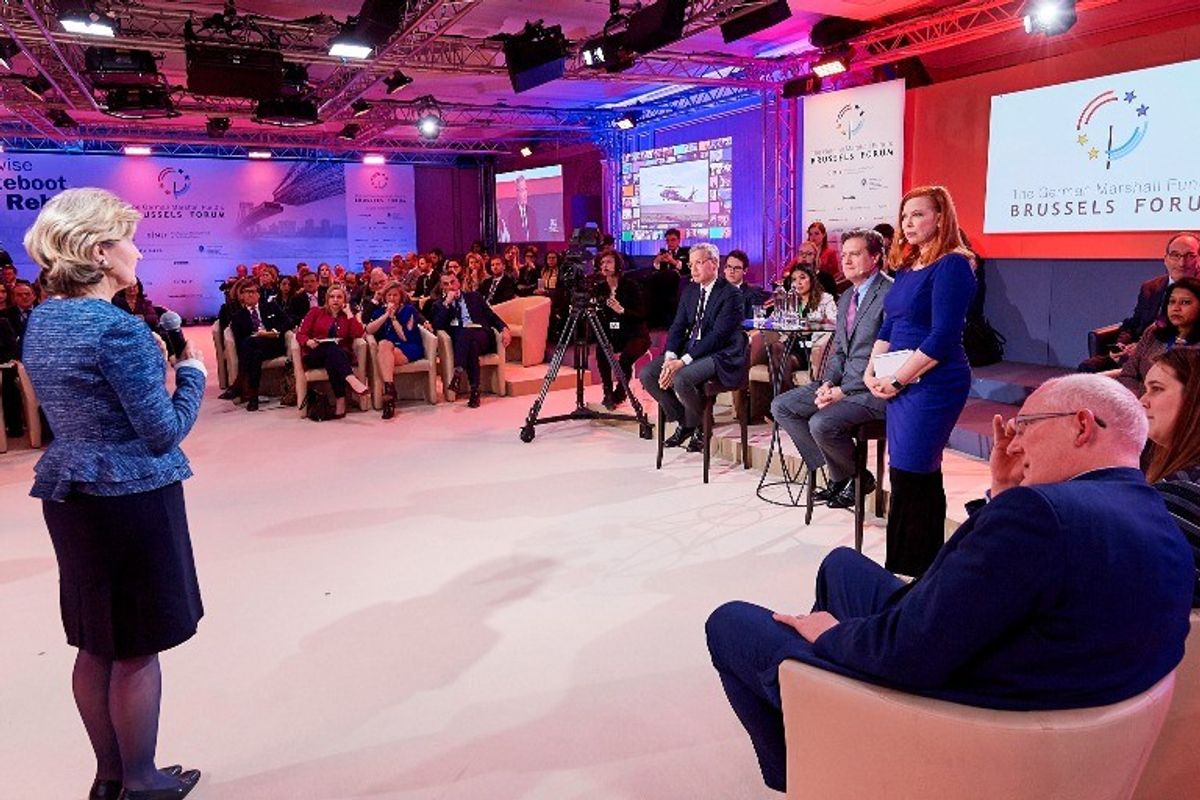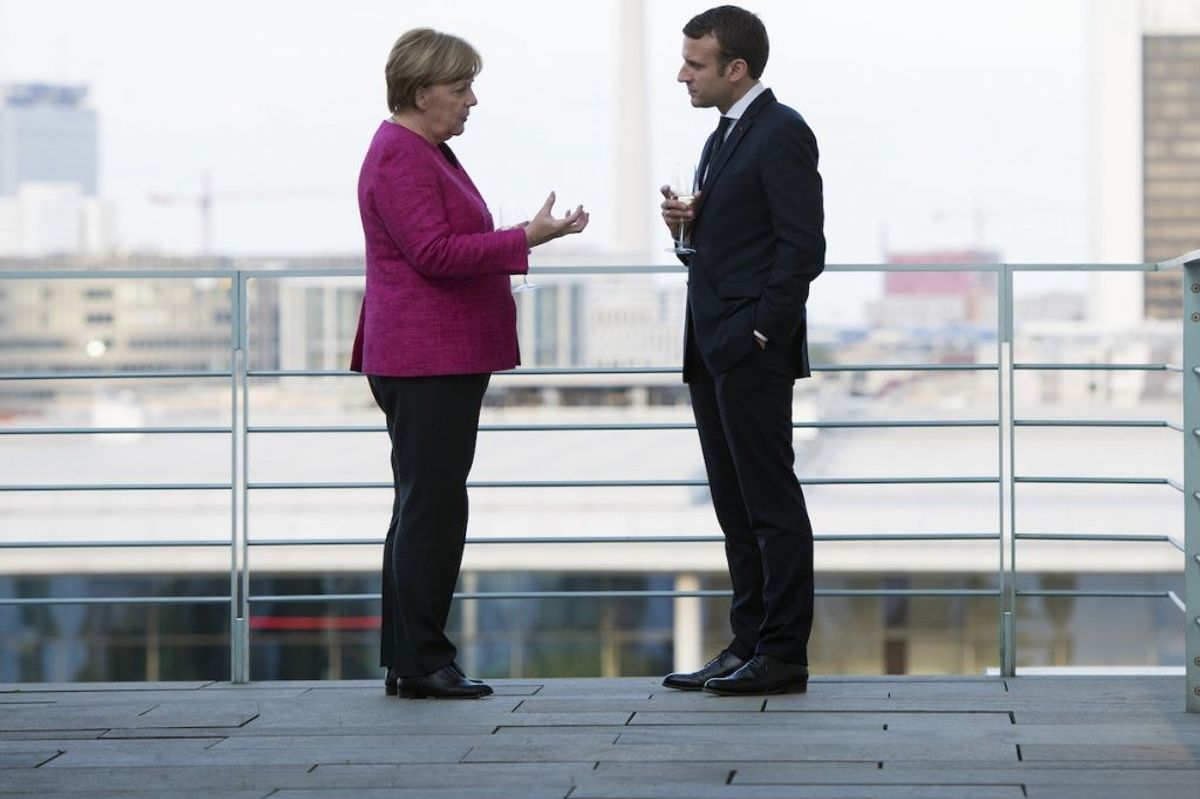President Barack Obama attracted much attention, positive and negative, for his comments during his April trip to the UK, advocating for Britain to remain in the EU. The invitation to come to London was almost certainly a consequence of an urgent request from Prime Minister David Cameron, who was sensing that he was losing the argument for Britain to “Remain” rather than “Leave” the European Union.
Obama’s primary argument was trade, that is, the UK would, in his words, “go to the end of the queue” for a trade arrangement with the U.S. if it left the EU and thus, presumably, the TTIP now negotiated between the U.S. and the EU. But he also said that the UK would lose “global influence,” while reassuring his British listeners that the “special relationship” would remain. Yet without as much global influence, Britain’s value for the U.S. could well diminish.
While the U.S. leader remains very popular in Britain, hence the value to Cameron of the invitation, the impact of his remarks was reduced by the “free rider” label he had given to Britain a few weeks earlier in reporter Jeffrey Goldberg’s “The Obama Doctrine” article in The Atlantic. Also, Britain’s chattering classes were aghast that the United States could recommend a policy of (continuing) diminution of British sovereignty to Brussels of a type the U.S. Congress would never tolerate itself. Worse still, making the case for trade and global influence was over-intellectualizing an argument, which has been reduced in the final lap to attitudes about national autonomy and immigration. The latter, mercifully, lacks much of a racist dimension. Instead, it reflects concern at the hundreds of thousands of Poles, Bulgarian, Romanians, and others who have come to live and to try to find work in Britain, undercutting wages and putting a strain on health and education services.
Before analyzing the impact of a “Brexit,” we note the implicit assumption just in the question of the role of Brexit on bilateral relations: that the U.S. will continue to play its global role at the center of a nearly universal security, trade, legal, and “values” order, and thus “care” about such decisions by a key ally. But Donald Trump has called that role into question. Nevertheless, assuming the U.S. continues its traditional global role, the implications of Brexit on it are significant but not dramatic.
In the core security/intelligence fields, little will change. The U.S. and UK were bosom allies for 30 years before Britain joined the EU; the bilateral venues of security cooperation: nuclear, intelligence, and military arrangements, NATO membership, UN Security Council partnership, and ‘Five Eyes” intelligence cooperation in Cyber and other fields (the three other ‘Anglo’ countries in that arrangement are not EU members), will undoubtedly continue untarnished.
But the UK’s “soft power” role as a complement to the U.S. will take a serious hit, to which Obama alluded. Around the world, the professional international class—diplomats, military, international financial and business figures, and cosmopolitan political leaders, the “Davos class” of global shakers and movers—will see a vote for EU exit as a sign of the British population’s, and thus any government’s, waning interest in the country’s global role. This will arguably impact economics, as noted below.
This general weakening of soft power will be manifest in two ways. First, Britain has served as a strong and effective force for a more Anglo-American approach to governance, financial, trade and commercial issues within the EU, helping, along with allies in the EU’s north—Germany, Netherlands, and the Scandinavian countries—to dilute the EU’s inherent tendency towards statism, anti-business initiatives, over-regulation and visceral anti-Americanism, as reflected by much of the EU’s permanent bureaucracy and in varying degrees its southern member states. That all goes with Brexit.
What also goes is British input into the EU’s Common Foreign and Security Policy, largely launched at Maastricht in 1993. Generally speaking, the UK has been an advocate within the EU for NATO’s predominant role in European security, including the diplomatic arrangements that undergird military decisions. Without the weight of Britain, France and other countries suspicious of NATO as an American “Trojan Horse” into EU diplomacy could push for a much greater security role for EU institutions, reducing NATO’s, and thus America’s, essential political military role—and with it, the political links between the U.S. and Western Europe, just when that role and those links are needed to deal with Moscow and a turbulent Middle East.
In terms of economics, financial services are much more important than trade. The primacy of London over Frankfurt and Paris persists. What should be the big question is whether U.S. and other foreign banks, will think they need to shift their operations from London to the continent. The hope, at least in the “Leave” camp, is that they don’t need to. The “Remain” camp argues the banks would leave if there was “Brexit.” Economists and business people are split – though most seem to prefer the choice to remain. For ordinary people the debate is just noise.
Trade-wise, Europe is Britain’s major trading partner, but Brexit supporters think changed regulatory frameworks will not be disadvantageous. An economist friend notes that Britain is currently the largest market for German cars as well as the biggest consumer of French champagne. Are Berlin and Paris really going to be mean and impose tariffs that will harm their own businesses? American businesses hoping to pick up some opportunities need to remember though that British measurements have gone metric, except for road distances and car speeds.
Britain is not part of the Eurozone, so its departure would not have a direct currency implication, but the markets are already marking down sterling in anticipation. Even so, Brexit would be a blow to the Euro, which has turned into a straitjacket for many European economies, particularly the Mediterranean ones. Further weaknesses for the Euro would have implications for the U.S. dollar, most likely strengthening it and thus stifling much needed trade expansion.
An exit vote, or just a narrow remain victory, will alter another status quo – the positions of Scotland and Northern Ireland. The Scottish Nationalists favor EU membership and will almost certainly press for another referendum on independence. The situation in Northern Ireland is more complex but will also be in flux. Ultimately though, leave or remain, there will still be that bond of a common language. We think the same. Well, at least sort of. And most of the time.















